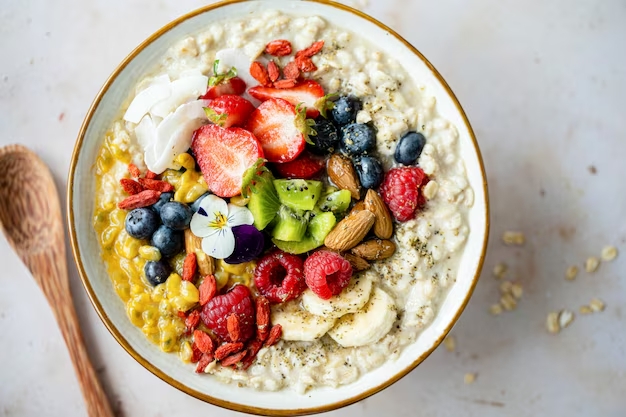Breastfeeding is a beautiful and natural way to nourish and bond with your baby, providing them with essential nutrients and antibodies for optimal growth and development. As a breastfeeding mother, it’s important to prioritize your own nutrition to support milk production, maintain energy levels, and ensure your own well-being. Choosing nutrient-rich foods can help you meet your increased nutritional needs while breastfeeding. In this article, we’ll explore a variety of foods that are beneficial for breastfeeding mothers:
1. Oats:
Oats are a nutritional powerhouse, rich in complex carbohydrates, fiber, and iron. They can help boost energy levels and support milk production. Enjoy oatmeal for breakfast or incorporate oats into baked goods like cookies or lactation bars.
2. Leafy Greens:
Leafy greens such as spinach, kale, and Swiss chard are excellent sources of vitamins A, C, and K, as well as calcium and iron. Include a variety of leafy greens in salads, soups, stir-fries, or smoothies to boost your nutrient intake.
3. Fatty Fish:
Fatty fish like salmon, trout, and sardines are high in omega-3 fatty acids, which are important for brain development in infants. Aim to include fatty fish in your diet at least twice a week to reap the benefits of these essential fatty acids.
4. Lean Protein:
Lean protein sources such as poultry, eggs, tofu, beans, and lentils provide essential amino acids for tissue repair and muscle growth. Include a variety of protein-rich foods in your meals and snacks to support overall health and satiety.
5. Whole Grains:
Whole grains like quinoa, brown rice, barley, and whole wheat provide complex carbohydrates, fiber, and essential nutrients such as B vitamins and iron. Choose whole grain breads, cereals, pasta, and grains as the foundation of your meals.
6. Dairy Products:
Dairy products such as milk, yogurt, and cheese are excellent sources of calcium, protein, and vitamin D, which are important for bone health and immune function. Opt for low-fat or non-fat dairy options to reduce saturated fat intake.
7. Fruits and Vegetables:
Colorful fruits and vegetables are packed with vitamins, minerals, antioxidants, and fiber. Aim to fill half of your plate with fruits and vegetables at each meal, choosing a variety of colors and textures for maximum nutritional benefits.
8. Nuts and Seeds:
Nuts and seeds are nutrient-dense snacks that provide healthy fats, protein, fiber, vitamins, and minerals. Enjoy a handful of almonds, walnuts, pumpkin seeds, or sunflower seeds as a nutritious snack or add them to salads, yogurt, or oatmeal.
9. Healthy Fats:
Incorporate healthy fats into your diet from sources such as avocado, olive oil, coconut oil, and nut butters. These fats provide essential fatty acids and fat-soluble vitamins, which are important for hormone production and brain health.
10. Hydration:
Staying hydrated is crucial for milk production and overall health while breastfeeding. Aim to drink plenty of water throughout the day, and consider herbal teas, coconut water, and homemade fruit-infused water for variety.
Maintaining a balanced and nutritious diet is essential for breastfeeding mothers to support their own health and the health of their babies. By incorporating a variety of nutrient-rich foods into your meals and snacks, you can ensure that you’re meeting your increased nutritional needs while breastfeeding. Remember to listen to your body’s hunger and thirst cues, prioritize self-care, and seek support from healthcare professionals or lactation consultants as needed. With proper nutrition and self-care, breastfeeding can be a rewarding and fulfilling experience for both mother and baby.










